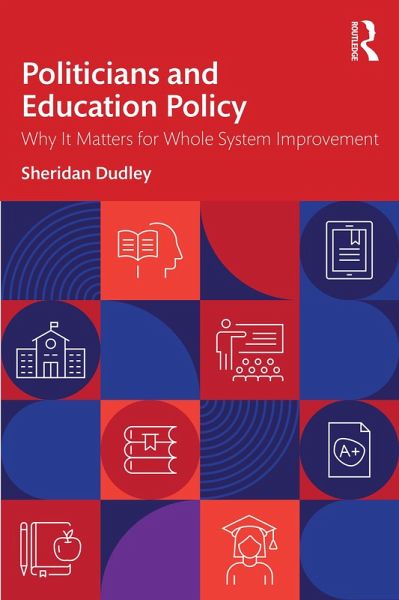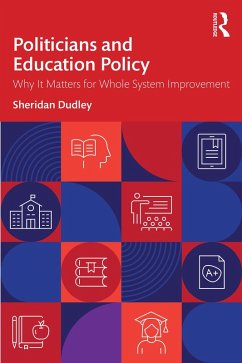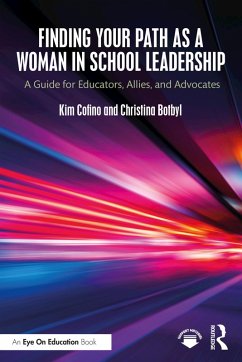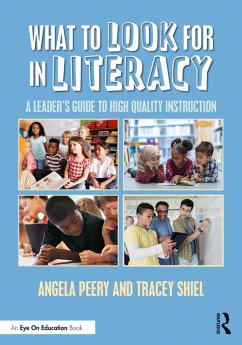
Politicians and Education Policy (eBook, PDF)
Why It Matters for Whole System Improvement
Versandkostenfrei!
Sofort per Download lieferbar
25,95 €
inkl. MwSt.
Weitere Ausgaben:

PAYBACK Punkte
13 °P sammeln!
Based on an in-depth case study, this book reveals how politicians, as policy makers, conceptualise, develop and initiate large-scale education system reform and why it matters for whole system school improvement.Governments all over the world are spending increasing time, money and effort on improving school systems but the evidence suggests that few of them are getting it right. There is much research devoted to educational strategies, policies, reform initiatives and outcomes. However, what is often missing is a generally agreed set of policies or principles which Ministers can draw on as a...
Based on an in-depth case study, this book reveals how politicians, as policy makers, conceptualise, develop and initiate large-scale education system reform and why it matters for whole system school improvement.
Governments all over the world are spending increasing time, money and effort on improving school systems but the evidence suggests that few of them are getting it right. There is much research devoted to educational strategies, policies, reform initiatives and outcomes. However, what is often missing is a generally agreed set of policies or principles which Ministers can draw on as a guiding framework. This book shows how political context impacts the development of education policy and reveals the critical and dynamic relationship between politics, policy and process. This book gives new insights into politicians as leaders in large-scale education system reform, distils lessons and identifies three practical strategic frameworks which provide new ways of understanding and engaging in whole system reform.
Offering unique "insider" insights from an Education Minister, their staff, public servants and key stakeholders, this book is written for all politicians, policy makers and educators involved in school improvement, as well as students of educational leadership and policy.
Governments all over the world are spending increasing time, money and effort on improving school systems but the evidence suggests that few of them are getting it right. There is much research devoted to educational strategies, policies, reform initiatives and outcomes. However, what is often missing is a generally agreed set of policies or principles which Ministers can draw on as a guiding framework. This book shows how political context impacts the development of education policy and reveals the critical and dynamic relationship between politics, policy and process. This book gives new insights into politicians as leaders in large-scale education system reform, distils lessons and identifies three practical strategic frameworks which provide new ways of understanding and engaging in whole system reform.
Offering unique "insider" insights from an Education Minister, their staff, public servants and key stakeholders, this book is written for all politicians, policy makers and educators involved in school improvement, as well as students of educational leadership and policy.
Dieser Download kann aus rechtlichen Gründen nur mit Rechnungsadresse in A, B, BG, CY, CZ, D, DK, EW, E, FIN, F, GR, HR, H, IRL, I, LT, L, LR, M, NL, PL, P, R, S, SLO, SK ausgeliefert werden.













